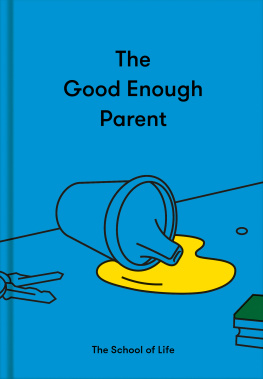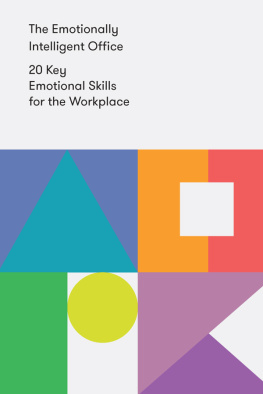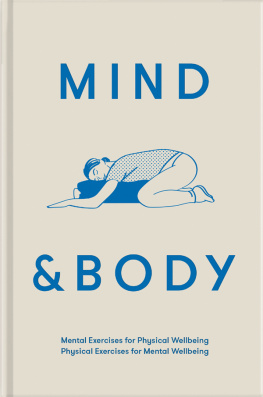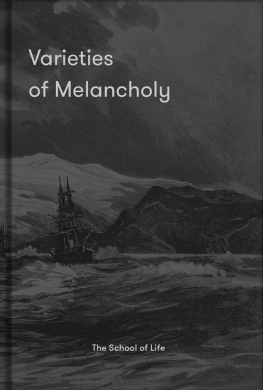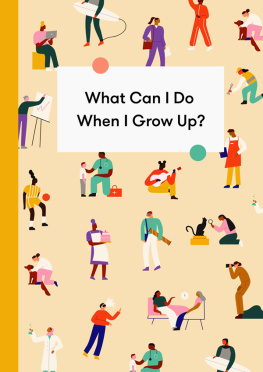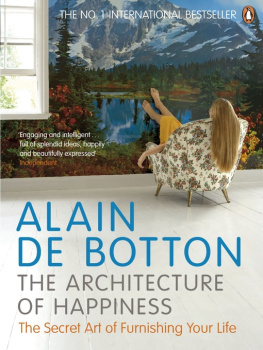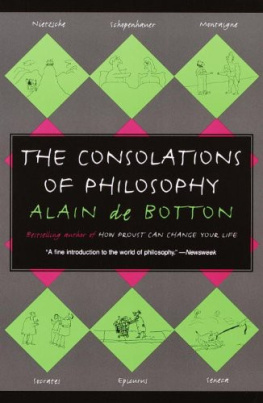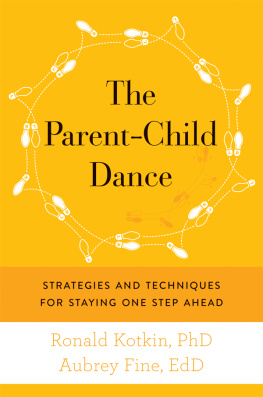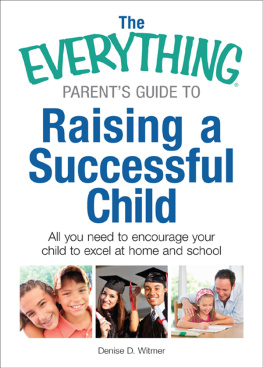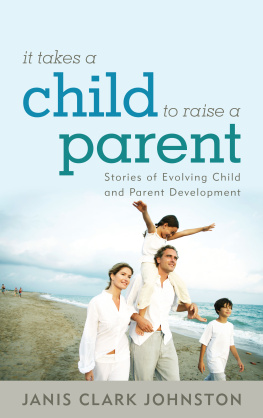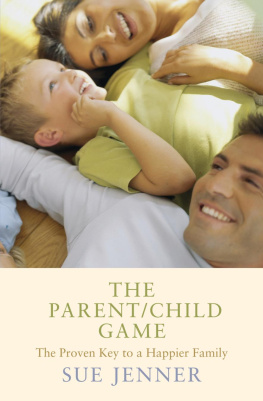Contents
Guide
A must-read for every parent feeling under pressure to be something theyre not.Justine Cullen
Why did I not have this book earlier? Its concise, true, easy to understand and makes complete sense. If you are a parent, get this book.Davina McCall
This book normalises the emotional and intellectual sensations of becoming a parent, calling upon us to extend grace to ourselves in order to raise well adjusted, interdependent children.Leandra Medine Cohen
A book so in tune with my personal ethos, but which also bolstered the way I approach my parenting and children! immeasurably.Pandora Sykes
Brilliant. The perfect combination of frank, compassionate and useful. As I read it, I was willing the words to be logged in my mind forever.Clemmie Telford
Published in 2021 by The School of Life
First published in the USA in 2022
70 Marchmont Street, London WC1N 1AB
Copyright The School of Life 2021
Designed by Marcia Mihotich
Typeset by Kerrypress
Printed in Latvia by Livonia
All rights reserved. This book is sold subject to the condition that it shall not be resold, lent, hired out or otherwise circulated without express prior consent of the publisher.
A proportion of this book has appeared online at
www.theschooloflife.com/thebookoflife
Every effort has been made to contact the copyright holders of the material reproduced in this book. If any have been inadvertently overlooked, the publisher will be pleased to make restitution at the earliest opportunity.
The School of Life is a resource for helping us understand ourselves, for improving our relationships, our careers and our social lives as well as for helping us find calm and get more out of our leisure hours. We do this through creating films, workshops, books, apps and gifts.
www.theschooloflife.com
ISBN 978-1-912891-95-5
10 9 8 7 6 5 4 3 2 1
The
Good Enough
Parent
How to raise contented, interesting and resilient children
CONTENTS
Introduction
For most of history, the reasons why people had children had very little to do with children themselves. They had them because they needed extra manpower on the farm, or because they wanted someone to look after them in old age; because they were afraid of the judgement of society, because God ordered them to give birth, or because they were trying to ensure the continuity of the family business or the nation. The child itself, with its unique nature and needs, with its particular aspirations for fulfilment, was typically the last thing on anyones mind. When it arrived, it was frequently treated little better than an animal; it was highly likely to die young and largely ignored until it had proved that it wouldnt and it was forced to obey and listen rather than explore and question. It may have existed, but it was not remotely at the centre of existence.
The modern world has shifted this attitude entirely. We now live in a much more child-centric universe, and are deeply concerned with the welfare and development of our children on their own terms. Our goal is no longer to produce new humans in order to satisfy our needs; it is to put them on the Earth so that they may flourish. We are interested in their inner growth and authentic possibilities. As parents have been repeating for two generations at least, we only want them to be happy.
And yet, strangely, whatever the theoretical strength of our commitment to childcare, we havent shown limitless imagination or thoroughness in our actions and methods. Our capacities lag behind our aspirations. We have been slow to shake off a nave trust in instinct, clinging to an intuitive way of going about things, and we can be suspicious of any overly direct process of education. There remains for many of us something offensive about the notion of having to seek instruction in how to make conversation with a 5-year-old or how to cope with a melancholic adolescent. We assume that we will just know. We suppose that being a decent parent is something we feel our way towards, not something we could train for. This book disagrees.
The stakes could not be higher. Once viewed as a kind of long dream that meant nothing and could be forgotten about as soon as it was over, childhood is now conceived of as a momentously consequential period in which the entire emotional disposition of a person will be formed and their chances of a mentally healthy life determined. It is the curse of Homo sapiens to have been lumbered with an exceptionally long and susceptible period of maturation. A foal can stand up thirty minutes after its birth, a golden eaglet grows up in twelve weeks, a chimpanzee is an adult in nine years, yet it can be twenty years or more until a human can make its own bed or face life unaided. This exposes our species far more than is usual in the animal kingdom to the quirks and vagaries of parents. It probably wouldnt matter overly if a baby turtles mother was emotionally detached or if a golden eagles dad had a propensity to humiliate. But our species takes parental failings much more to heart. An unfortunate time between the ages of 1 and 9 has the power to unbalance a whole life; a depressive parent can permanently sap a childs energy to succeed.
This sensitivity explains the dread that accompanies many modern efforts at parenting. Parents are only too aware, as their 12th-century predecessors were not, that their choices at the dinner table or at bedtime can either lay down the foundations for sanity and hope or doom a child for the next eight decades. In the circumstances, it would be understandable if some of us were to seek out systematic instruction. The puzzle is how we could be expected to handle child-rearing without it, any more than we could understand the orbital path of Jupiter or the nature of the Martian atmosphere without taking time for some lessons.
Before we begin such instruction, we should dare to consider a nagging question: how many of us should actually be having children? The topic feels taboo. The assumption of modern societies is that every normal person should seek to have children, and that no effort should be spared in enabling them to do so.
Yet wisdom may point us in a different direction. Many of us do not necessarily want to have children; we just feel an enormous pressure to produce them anyway. After a few years together, a young couple will face a barrage of questions as to when a baby will be on the way, and can expect to be judged harshly if they have no interest in delivering one.
Yet a society that properly loved children would know that the greatest factor contributing to childrens welfare is the removal of the idea that everyone should automatically have them. A good society would give equal prestige to child-free and childful states. We best honour children, both the born and the unborn, by accepting that parenting should never be the automatic choice, just as the wisest way to ensure that people will have happy marriages is to destigmatise singlehood.
If we havent travelled, if we dont yet know what we want, if we have a hard time staying with anyone for a while or remaining friendly with them when we part, if we like to be admired a lot, if our real passions lie at the office, if the purpose of our life is to be famous, if we dont especially like to listen, if we have trouble being calm, if we have been very badly scrambled by our own parents, then we might consider whether in fairness to everyone involved this is really for us. Some of the best people in existence do not make ideal parents; the truly great ones know this about themselves and act bravely on the knowledge.

